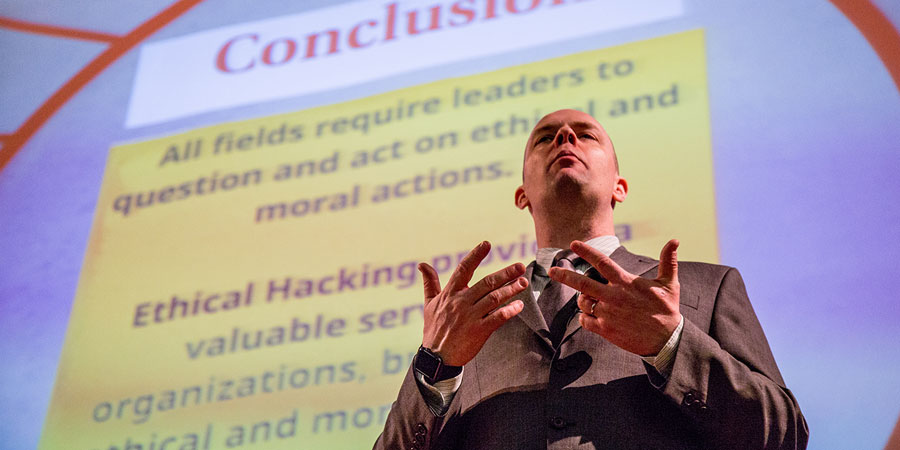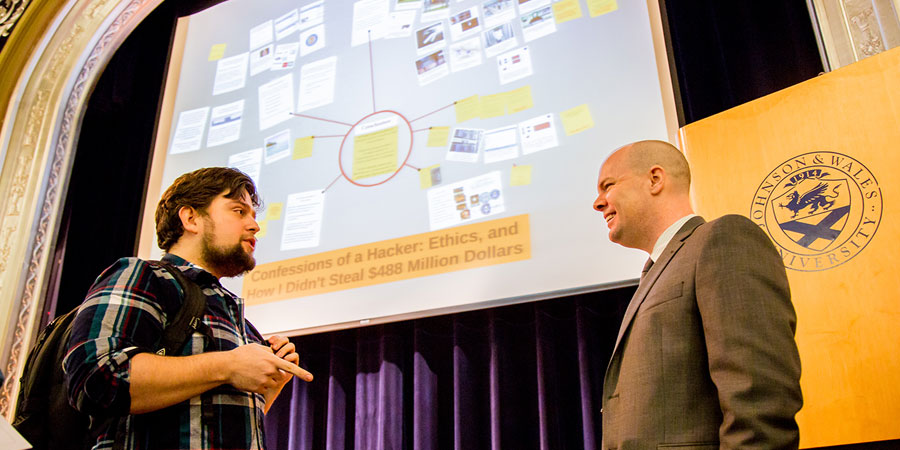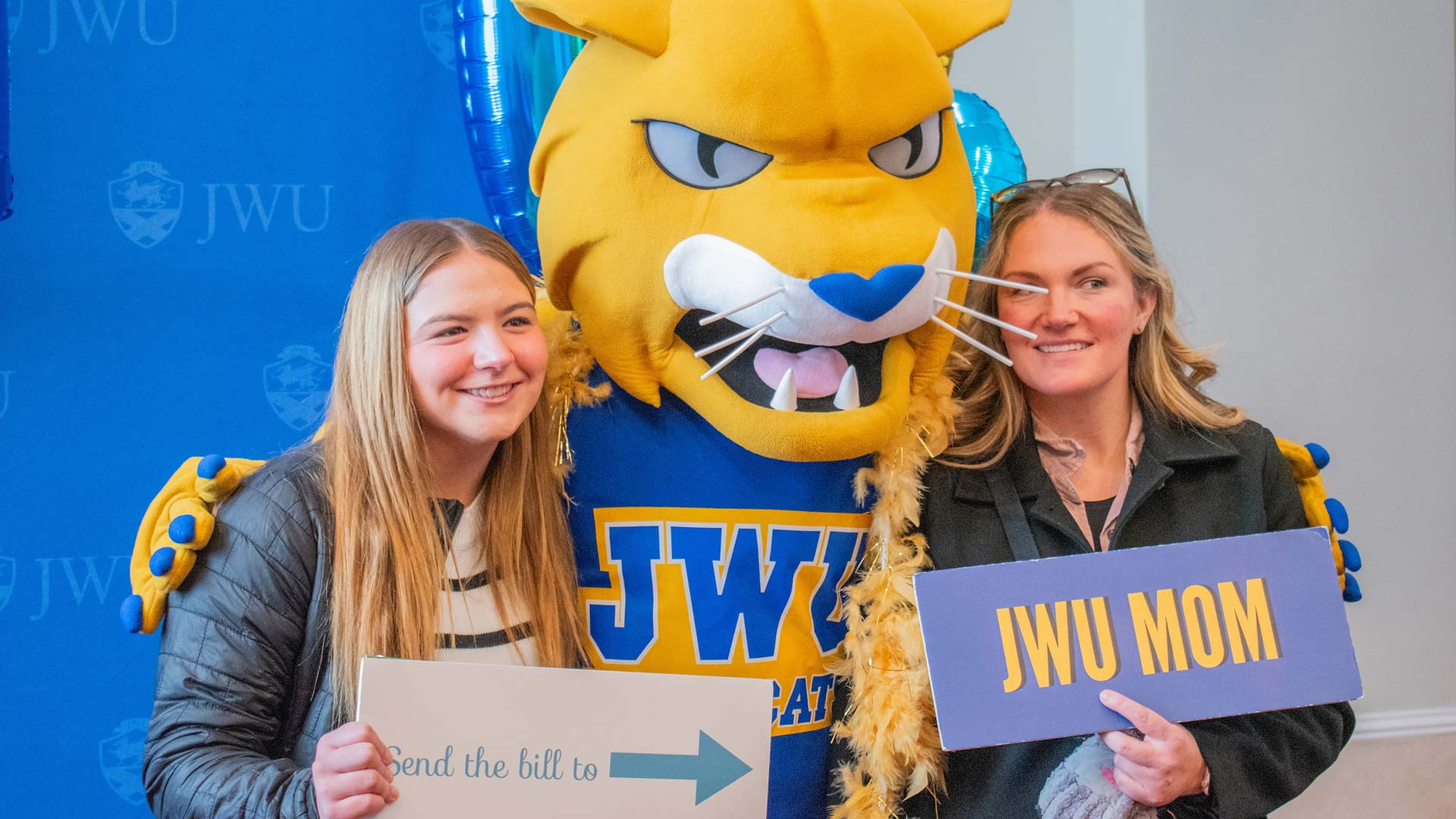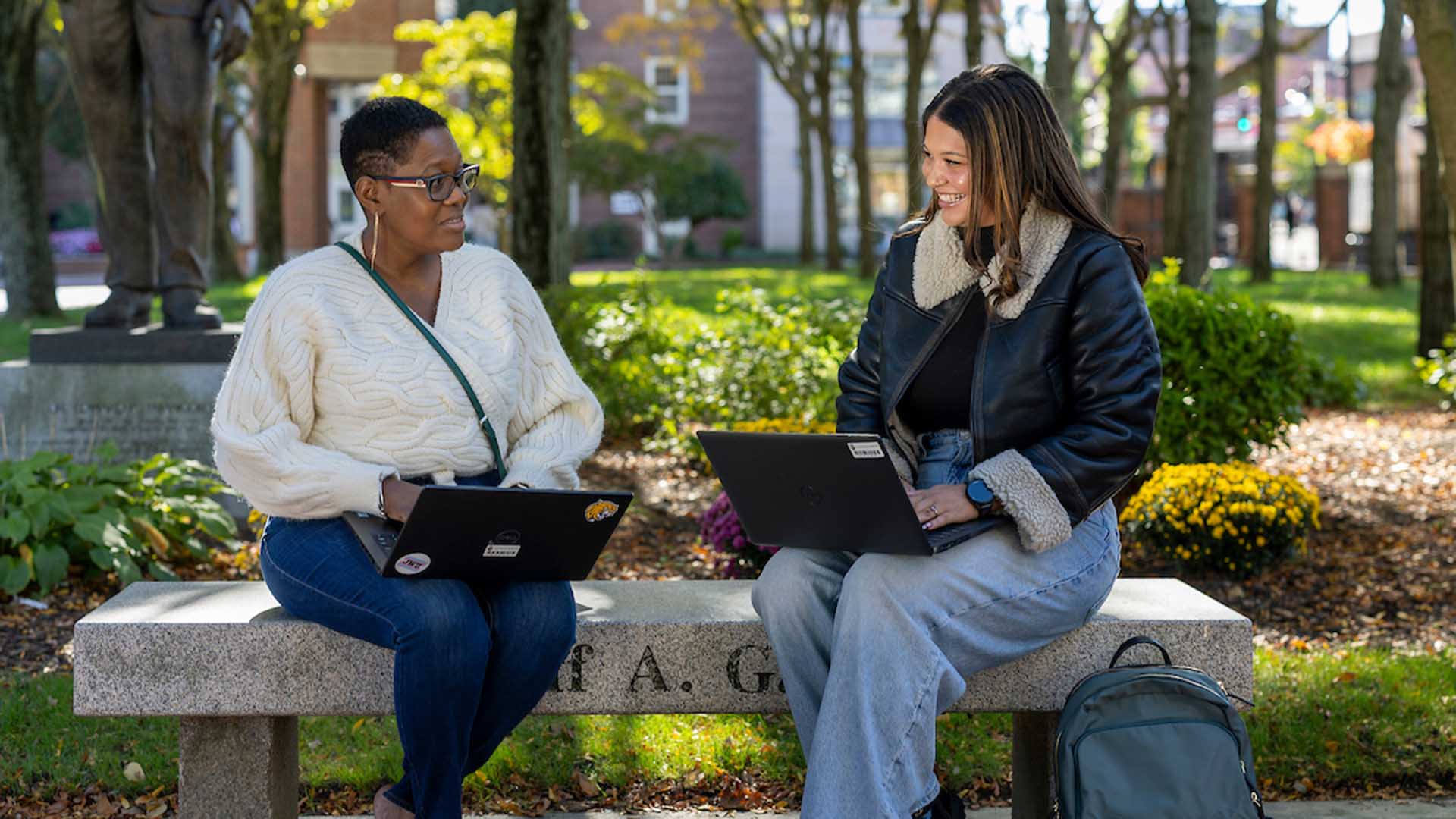Exploring the Ethics of Hacking with Joshua Wright '97
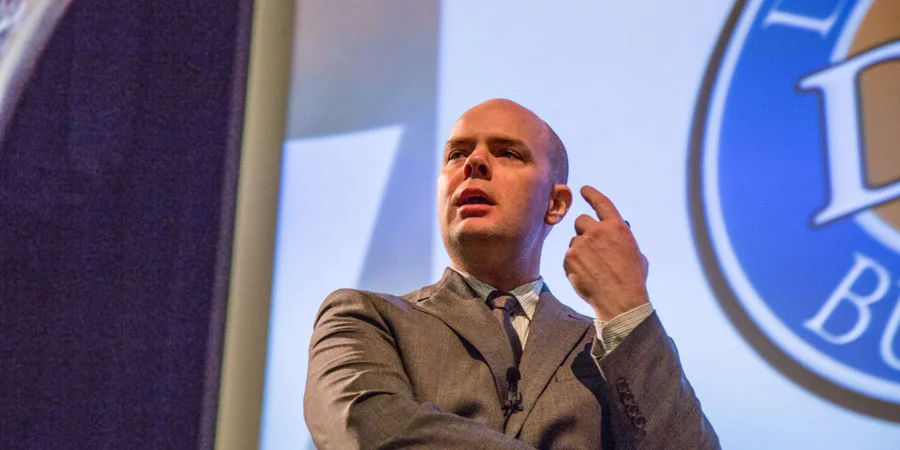
Johnson & Wales University alum Joshua Wright’s recent talk at the Providence Campus opened with a loaded question about the dividing lines between “white hat” and “black hat” computer hacking: “What’s the difference between me and a bad guy? One word: Permission.”
Wright, a 1997 graduate of JWU’s College of Engineering & Design (then the School of Technology), is a writer, educator and active hacker who exposes critical data vulnerabilities and helps corporations and organizations (Apple, Cisco Systems, the FBI and the US Army, to name a few) safeguard their information systems. “I hack to understand and reveal flaws in systems before they are maliciously exploited,” he told the assembled students, most of whom would track into networking/info systems careers.
What IS Ethical Hacking?
Wright illustrated the complex nature of his job with a story about a consultancy job he took to troubleshoot the data network of a national financial services firm. (A nondisclosure agreement prevented him from naming the company.)
“I had a month, and I wasn’t getting anywhere — until I found that developers had left a ‘test mode’ feature enabled on the software powering one of their servers.”
That loophole could potentially allow an attacker to manipulate the system by redirecting funds — roughly $500 million over a 72-hour period — into one or more bank accounts.
“Think about that,” he said. “Half a billion dollars. That money must be converted to currency, which requires money laundering. Assuming 25% of the money is recoverable in cash, you might clear $125 million. That could definitely pay off some student loans!”
He paused: “So why don’t I live on my own personal island in the South Pacific?”
Defining Your Own Code of Conduct
He freely admitted that his career path constantly sparks these types of big questions about personal responsibility.
Ultimately, he explained, it’s about thinking critically and contributing to the greater good: “Ethics are defined externally, while morals are your own code,” he noted. “I share what I do publicly because I believe that my actions SHOULD make the world a better place — like helping the FBI reduce predators, or helping the US Army better protect soldiers.”
His larger point to students: No matter what field you ultimately choose, “keep asking questions about morality,” he said. “Foster relationships with people who don’t think the same way you do. Accept that you may not always be right.”
He wrapped up by speaking fondly of his student days. “Professor Jim Sheusi [Networking/Engineering] asked me to help him teach a class. That opportunity changed my life.”'
